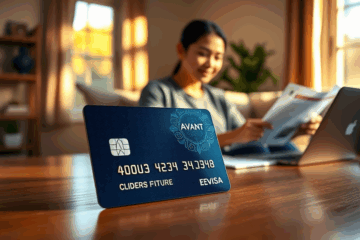Credit Cards Simplified for New Users
Credit Cards are essential financial tools that offer flexibility and convenience in today’s economy.
In this article, we will explore the intricacies of how credit cards function, the benefits of using them responsibly, and the importance of making timely payments.
We will also discuss the various types of credit cards available for beginners, strategies for managing spending effectively, and common pitfalls to avoid.
Additionally, we will highlight valuable resources and tools to guide you on your credit journey, ensuring you equip yourself with the knowledge needed to make informed financial decisions.
Understanding the Basics of Credit Cards
Credit cards are essential financial tools that empower individuals to manage their expenses and build a strong financial future.
Essentially, a credit card is a rectangular piece of plastic or metal providing access to a revolving line of credit.
This means when you make a purchase, you’re borrowing money from the bank or financial institution that issued the card.
Understanding credit cards is crucial in ensuring smart financial decision-making.
- Builds credit history
- Offers convenience
- Provides security
Responsible use of credit cards offers numerous benefits.
As you learn about credit cards, you’ll discover the significance of terms like credit limit, which represents the maximum amount you can borrow, and interest rate, the cost of borrowing money if you don’t pay your balance in full during the billing cycle.
Resources such as NerdWallet provide valuable insights to help you navigate these aspects, ensuring you use your credit card wisely and reap the rewards it offers.
How Credit Card Billing and Interest Work
After making a purchase with your credit card, the transaction adds to your account balance during the current billing cycle, which typically spans 28 to 31 days.
At the end of each billing cycle, a credit card statement is issued, which includes all your transactions during that period and the total amount due.
Timely payment of the full statement balance by the due date prevents additional charges.
However, if only the minimum payment is made, the remaining balance carries over, with interest applying to it, starting immediately.
The APR (Annual Percentage Rate) indicates the interest rate calculated on balances not paid in full, affecting your total debt if not managed properly.
Understanding your credit card statement enhances responsible card usage.
You can improve your awareness with resources like Bankrate, which can explain statement nuances.
Proper attention to statements helps you avoid unnecessary debt.
Typical statement components include:
- Previous balance
- Payments and credits
- New charges
- Minimum payment due
- Payment due date
Comparing Beginner-Friendly Card Types
For those new to credit cards, exploring the options of secured, student, and starter cards can be a crucial decision in building financial independence.
Secured credit cards require a deposit, usually equal to your credit limit, making them accessible for building credit with little financial risk.
Student credit cards typically offer rewards tailored for college expenses and don’t require a deposit.
Starter cards, while similar to traditional credit cards, often come with lower limits and minimal perks.
Here’s a comparison:
| Card Type | Typical Credit Limit | Pros | Cons |
|---|---|---|---|
| Secured | $200–$2,000 | Easy approval, credit-building | Requires a deposit |
| Student | $500–$1,500 | No deposit, relevant rewards | Requires student status |
| Starter | $300–$1,000 | No deposit, building credit | Limited rewards, lower limit |
Those with no credit history may begin with secured cards, whereas students might prefer student credit cards for their ease and rewards.
Starter cards offer a balance between building credit and managing expenses.
Building Healthy Credit Card Habits
Beginners looking to build healthy credit card habits should focus on controlling spending and setting effective limits.
Never max out your card as it can lead to financial pitfalls.
Instead, aim to keep your balance well below your credit limit; this not only reduces stress but also positively impacts your credit score.
To track spending efficiently, utilize tools offered by your credit card provider or apps specifically designed to sync your transactions.
By doing so, you remain aware of every purchase, making it easier to adjust your budget as needed.
Remember, the key to avoiding debt is mindful and informed spending; therefore, always review your monthly statements for any unexpected charges.
Furthermore, developing a reliable payment strategy is crucial for maintaining a strong credit profile.
Pay before the due date to avoid interest and late fees, which can otherwise snowball into more significant financial challenges.
Setting up automatic payments can offer peace of mind by ensuring you never miss a due date.
For those who prefer more control, consider setting timely reminders to consistently settle your balance.
While paying the minimum amount keeps your account in good standing, strive to pay more than the minimum to reduce your balance faster and enhance your financial health.
Building these habits assists in creating a positive credit history, a step towards financial security.
Digital Tools and Resources for New Cardholders
Mint stands out as a versatile tool for new cardholders seeking to manage their finances effectively.
This free app offers comprehensive tracking by linking your credit cards, bank accounts, and investments, giving you a consolidated view of your spending habits.
By using Mint, beginners can automatically categorize transactions and set up budget alerts to ensure that they stay on track with their financial goals.
Transitioning to credit score monitoring, Credit Karma provides an accessible platform to check your credit score and gain insights into your credit profile.
You can learn more by visiting Credit Karma, which offers not only free score monitoring but also tips to improve your credit health, which is beneficial for new cardholders.
Enhancing financial literacy is possible with reputable educational resources like NerdWallet, which delivers critical information about credit cards and other financial products in an easily digestible format.
YNAB (You Need a Budget) is another excellent app for cardholders focusing on precise spending plans, providing a clean interface that emphasizes proactive budgeting.
For anyone trying to delve deeper into effective money management, their website offers guides that illuminate challenging financial concepts, making them accessible for those just starting to use credit responsibly.
Through using these tools, new cardholders can not only track their expenditures but also build the foundation for a strong credit history.
Credit Cards can be powerful allies in your financial journey when used wisely.
By understanding their functions and adhering to best practices, you can build a strong credit history and unlock further financial opportunities.



0 Comments